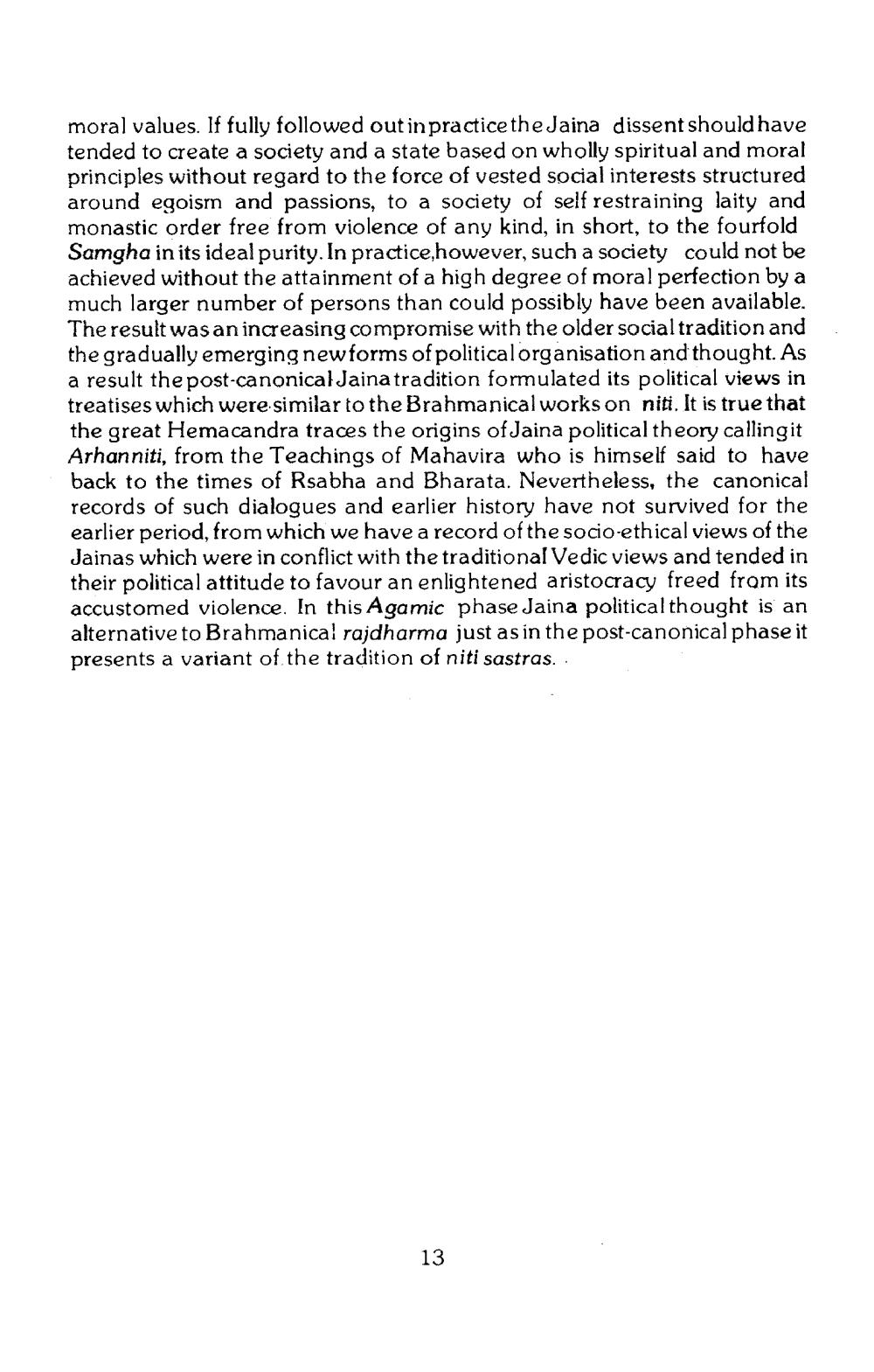________________
moral values. If fully followed out in practice the Jaina dissent should have tended to create a society and a state based on wholly spiritual and moral principles without regard to the force of vested social interests structured around egoism and passions, to a society of self restraining monastic order free from violence of any kind, in short, to the fourfold Samgha in its ideal purity. In practice, however, such a society could not be achieved without the attainment of a high degree of moral perfection by a much larger number of persons than could possibly have been available. The result was an increasing compromise with the older social tradition and the gradually emerging new forms of political organisation and thought. As a result the post-canonical Jaina tradition formulated its political views in treatises which were similar to the Brahmanical works on niti. It is true that the great Hemacandra traces the origins of Jaina political theory callingit Arhan niti, from the Teachings of Mahavira who is himself said to have back to the times of Rsabha and Bharata. Nevertheless, the canonical records of such dialogues and earlier history have not survived for the earlier period, from which we have a record of the socio-ethical views of the Jainas which were in conflict with the traditional Vedic views and tended in their political attitude to favour an enlightened aristocracy freed from its
ccustomed violence. In this Agamic phase Jaina political thought is an alternative to Brahmanical rajdharma just as in the post-canonical phase it presents a variant of the tradition of niti sastras..
13




